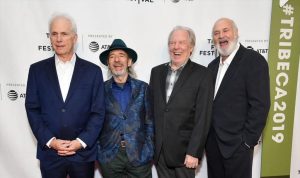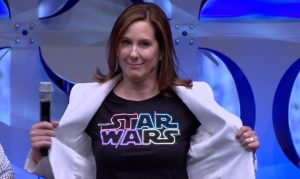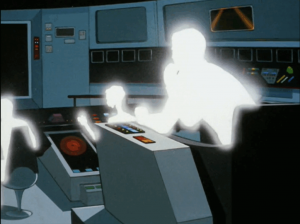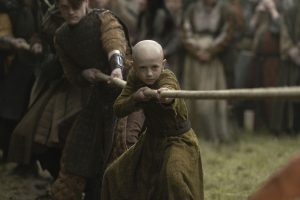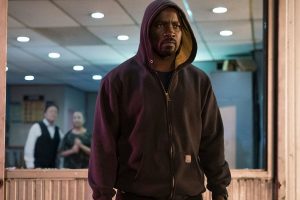Netflix CEO Ted Sarandos has done a new major interview with The New York Times touching upon a number of topics over the past year ranging from the cinema success of the Barbenheimer event to his company’s own recent and controversial hit “Baby Reindeer”.
In regards to “Barbie” and “Oppenheimer” becoming such major cultural events, Sarandos says those being streaming releases rather than cinematic releases would have been just as big in terms of generating conversation and talk:
“Both of those movies would be great for Netflix. They definitely would have enjoyed just as big an audience on Netflix, and so I don’t think there’s any reason to believe that certain kinds of movies do or don’t work.
There’s no reason to believe that the movie itself is better in any size of screen for all people. My son’s an editor. He is 28 years old, and he watched ‘Lawrence of Arabia’ on his phone.”
One difference is headlines about financial success with “Barbie” generating $1.45 billion at the global box-office while “Oppenheimer made over $976 million.
Of course Netflix has found itself in the cultural conversation lately with Richard Gadd’s “Baby Reindeer” about Gadd’s life and his experience dealing with a stalker .
Sarandos says Netflix’s algorithm is behind the show’s success as it recommended the show to international audiences and has taken a property like that much further than it would’ve had gone conventionally:
“There was a time when something like Baby Reindeer would not even be seen in the United States. And if it did, it’d be on PBS once.
It’s very, very big in the U.K., and in that way that Netflix does, it gets picked up in the algorithm and starts getting more and more presented, because when something gets that big in one country, it’s likely there’s a lot of audience for it outside of that country. And it’s been an enormous hit around the world.”
Sarandos talks about how his business is aggressively forward-looking and how that was reflected in the way they handled the move from physical media rentals to streaming:
“In periods of radical change in any industry, the legacy players generally have a challenge, which is they’re trying to protect their legacy businesses. We entered into a business in transition when we started mailing DVDs 25 years ago. We knew that physical media was not going to be the future.
We just didn’t spend any time trying to protect our DVD business. As it started to wane, we started to invest more and more in streaming. And we did that because we knew that that’s where the puck was going.
At one point, our DVD business was driving all the profit of the business and a lot of the revenue, and we made a conscious decision to stop inviting the DVD employees to the company meeting. We were that rigid about where this thing was heading.”
Finally, he broached the topic of AI and says he’s no less invested in the transition to using that tech:
“I think that AI is a natural kind of advancement of things that are happening in the creative space today, anyway, Volume stages did not displace on-location shooting. Writers, directors, editors will use AI as a tool to do their jobs better and to do things more efficiently and more effectively.
I don’t believe that an AI program is going to write a better screenplay than a great writer, or is going to replace a great performance, or that we won’t be able to tell the difference. AI is not going to take your job. The person who uses AI well might take your job.”
Netflix boasts around 269.6 million paid subscribers worldwide as of the first quarter of 2024, but recently indicated they will stop reporting subscriber count numbers in the first quarter of 2025.
The post Netflix Chief Talks “Barbie,” “Reindeer” & A.I. appeared first on Dark Horizons.
